Jullie’s story
Jullie took part in all three of our flagship programmes through our WEAVE initiative. Developing her entrepreneurial skills enabled her to take her artisanal food company to the next level.

It’s important to support women entrepreneurs because women can multi-task and save the world. We strive for better welfare.
Jullie Hakim is the founder of Bhumi Rasa, an artisanal food company based in Jakarta, Indonesia on a mission to provide innovative, healthy food. She is one of 12,000 women entrepreneurs in Vietnam and Indonesia trained through our WEAVE project with USAID, Qualcomm® Wireless Reach™, Kinara Indonesia and WISE Vietnam. Our programmes supported her to hone her mindset, perfect her marketing and boost her business. Now, she’s able to work towards her vision of supporting the next generation and inspiring others.
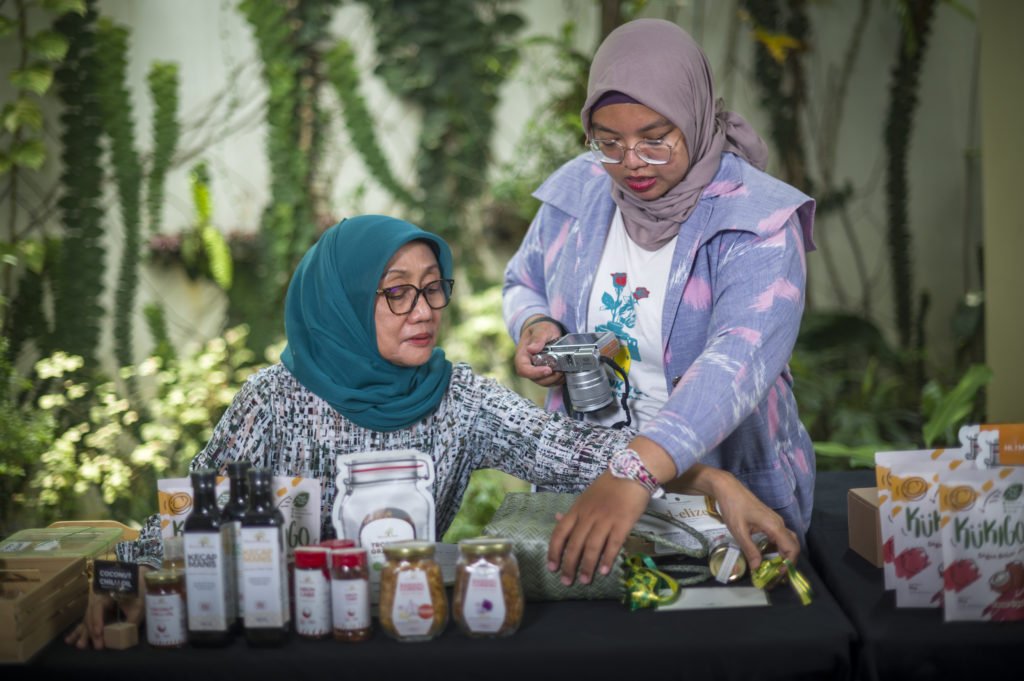
Prior to officially starting Bhumi Rasa in 2016, I was studying to be a veterinarian and my husband was working as a civil servant. When my husband moved to Japan to get his master’s and doctoral degrees, I moved with him. I was there for eight years. During that time, he was also working at the Indonesian Institute of Sciences (LIPI) which gave me the opportunity to meet lots of researchers whose expertise in nutrition and agriculture corresponded nicely with my focus on providing healthy food for my children.
I met one researcher who had set up a chicken farm that hadn’t been impacted by bird flu despite the spread of the disease, and spoke with a couple who prepared their land for planting organic vegetables. I felt this environment suited me really well, so I began producing tempeh, healthy chicken, eggs and organic vegetables out of my garage – initially to increase my children’s intake of healthy food, but then I started selling too.
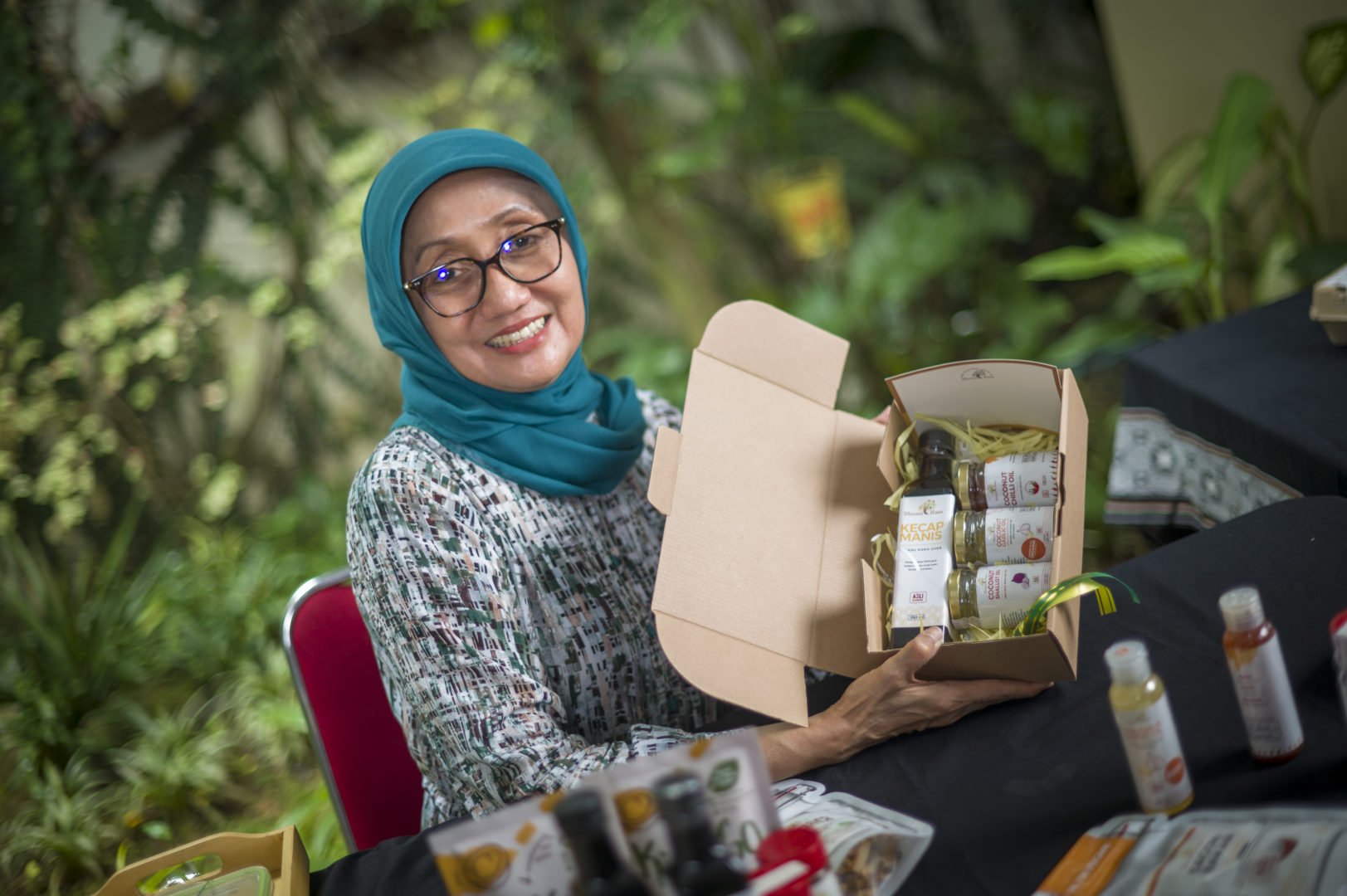
[Working with my mentor] completely changed my mindset and helped me gain the mentality and confidence of an entrepreneur.
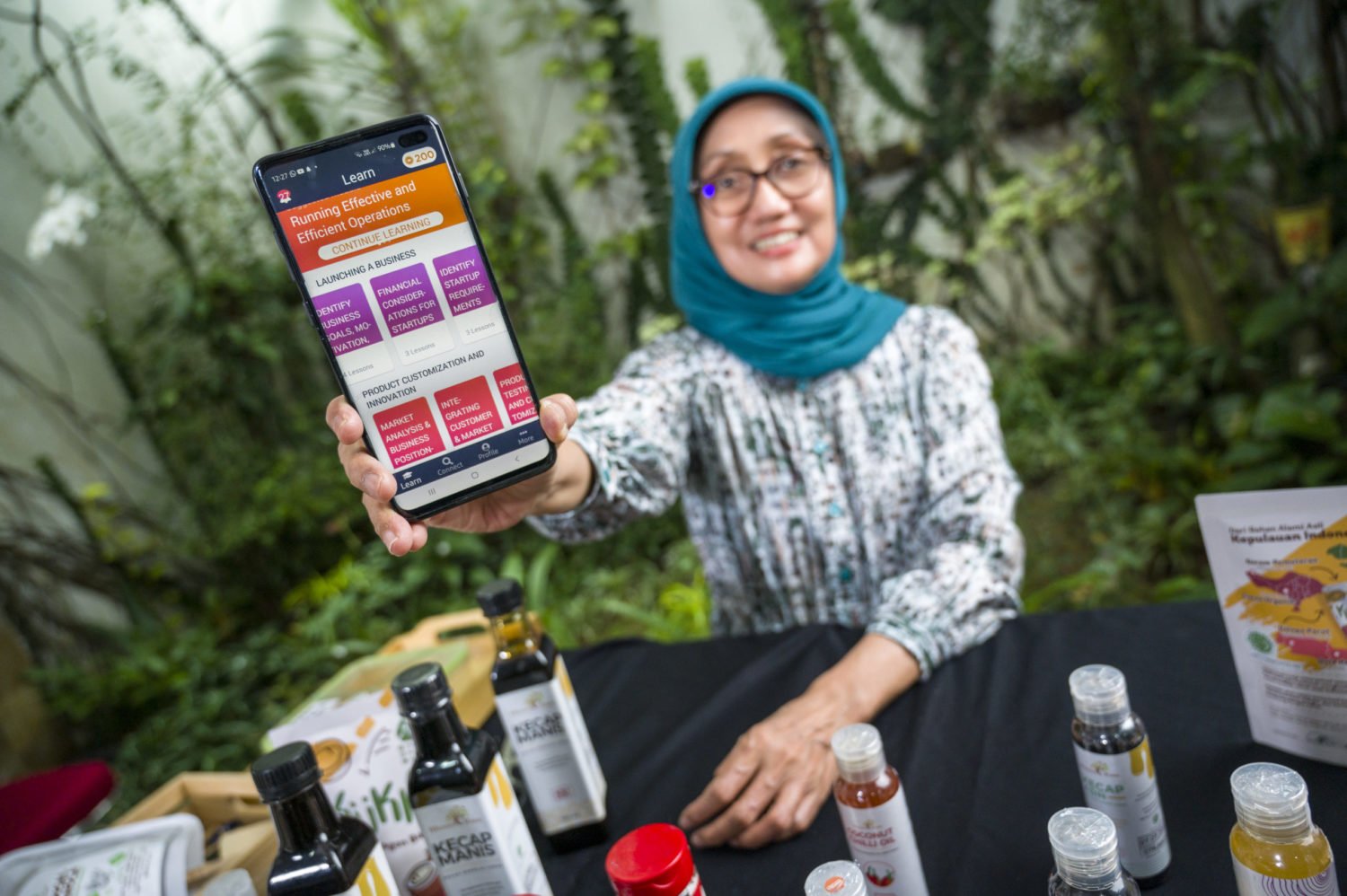
Using the Foundation’s HerVenture app and participating in its Road to Growth programme for six months highlighted the major gaps in my financial education and taught me to how better communicate with my team and effectively market my brand. Because of this, I’m now building a team of individuals who understand financial records and hiring younger workers who know how to use digital marketing tools like Instagram and TikTok to broaden my reach and promote my products to their generation. I want to educate young Indonesians about how sagon fits into their culinary heritage and how these Indonesian products are high quality and Instagram and TikTok are the way to do that. Whereas with my generation, most people are comfortable using Facebook, but none of the other platforms. So I’m working on developing a presence across all platforms.
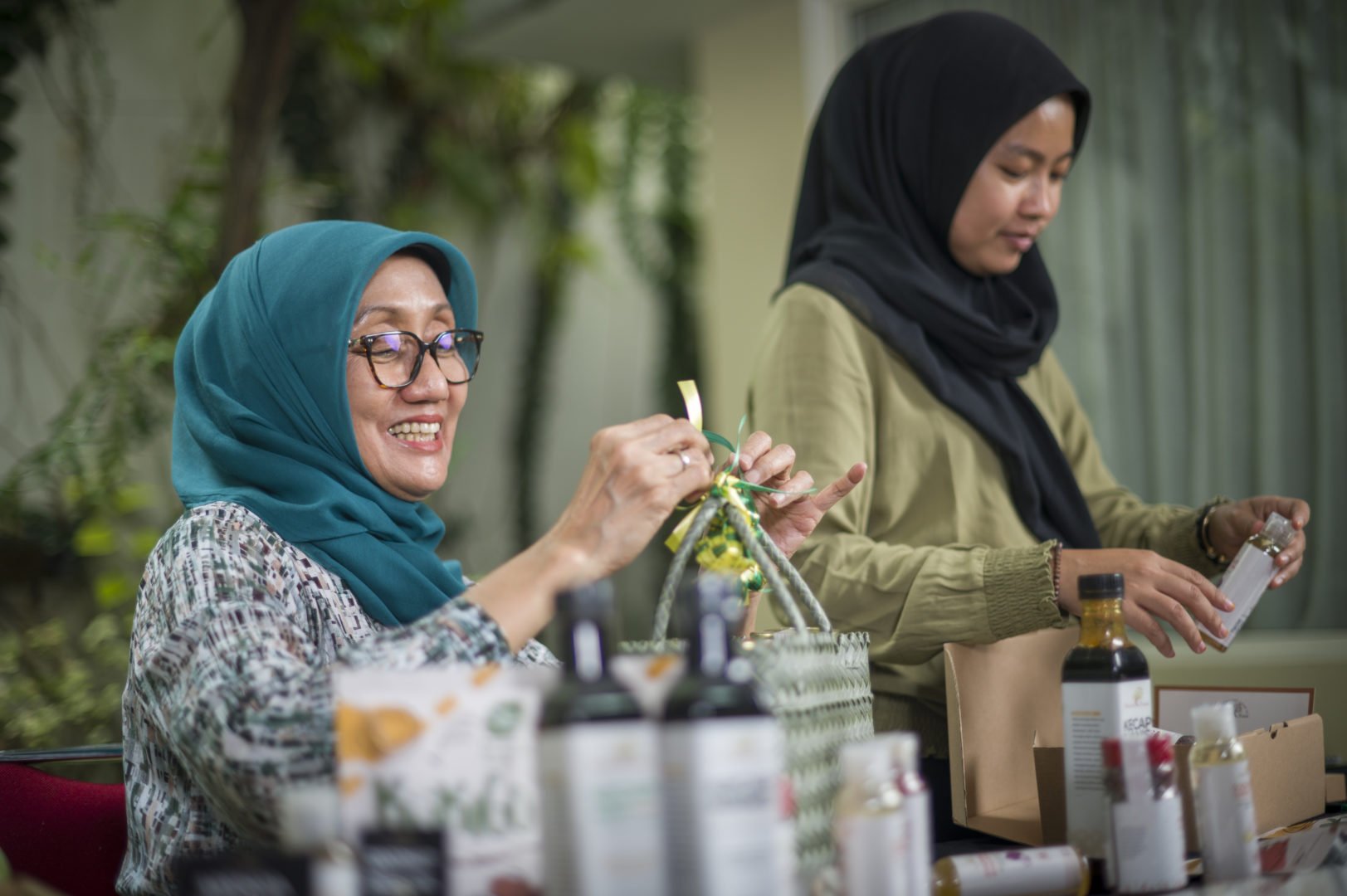
I also worked with coach Rini during the Road to Growth program. She has an educational background in product development and pushed us to make pitch decks. I made mine for grilled sagon, a product I’d been wanting to launch for a long time. Originally, my target market were vegans, but Rini advised that I could expand the demographic. Because pediatricians recommend this product for children, I began producing cookie dough made from grilled sagon. To sweeten it, I use organic chocolate from Bali and organic coconut sugar.
I believe that during the pandemic, most people returned to consuming healthy foods because they were doing much of their cooking at home. So I saw this as a business opportunity as well. I could promote our products to mothers who are balancing the responsibilities of housework and home-schooling their children by highlighting how our products are easy to prepare and contain ingredients that are beneficial for toddlers’ growth.
I want to focus on my mission to educate younger generations about our local products and to take pride in Indonesian agriculture. I also want to encourage women who are my age to get out of the comfort zones and start businesses of their own so they can live independently.
It’s important to support women entrepreneurs because women can multi-task and save the world. It’s been said that throughout the history of Indonesia, women entrepreneurs saved the country from economic crises through the existence of women-owned SMEs. We strive for better welfare.
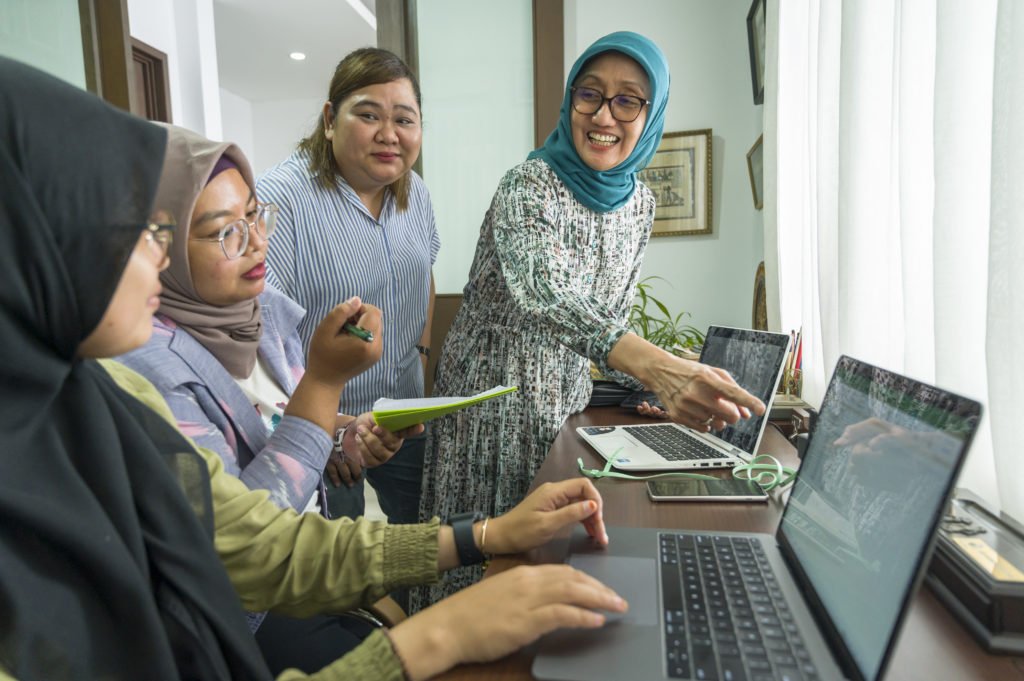
At my age, I want to focus on my mission to educate younger generations about our local products and to take pride in Indonesian agriculture. I also want to encourage women who are my age to get out of the comfort zones and start businesses of their own so, if necessary, they can live independently. Ultimately, I just want to be make a positive impact. I believe that if I do, God will send me his helping hand. I’m not driven by profits. I see the ultimate reward as health and happiness for my family.
In the future, I hope my children will become more involved and that my team of young people will stay motivated to keep going and be proud of local products. If were are never proud of local products and get distracted by imports, we’ll lose our momentum and Indonesian businesses will fail. We need to invest in creators, whether they be in the arts or the culinary fields and we need to support women-owned SMEs so they grow and don’t need to compete with bigger companies. This is the only way they will be strong enough to face the future.
Made possible by...
WEAVE was delivered collaboratively by the Foundation, Qualcomm® Wireless Reach™, and local, in-country implementing partners Kinara (Indonesia) and WISE (Vietnam). The contract was awarded by the ASEAN-USAID Inclusive Growth in ASEAN through Innovation, Trade, and E-Commerce (ASEAN-USAID IGNITE) program, a USAID-funded activity.




We're able to support women entrepreneurs because of your donations
Do you share our vision for a better, more equal, more prosperous world? Do you believe human rights and global prosperity can co-exist? Will you help us change the lives of thousands more women? Push our work further with a transformational donation today!
Donate now!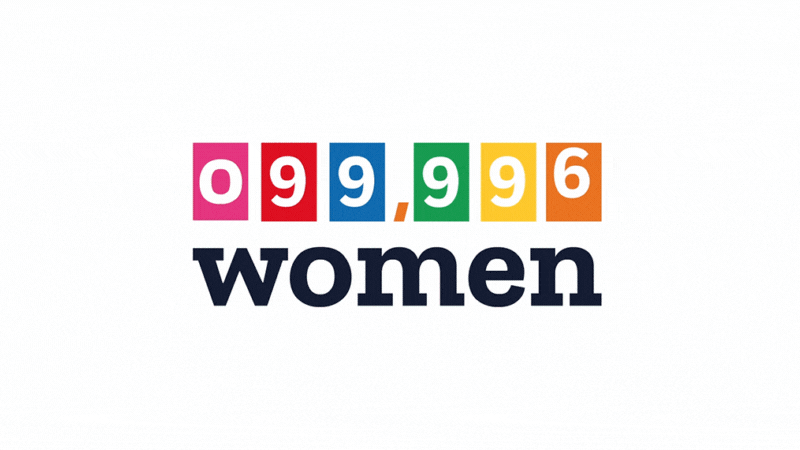
Discover more women entrepreneurs' stories:
-
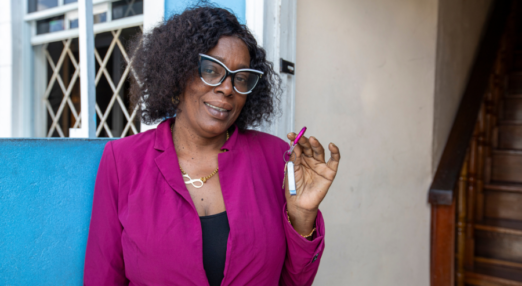
Dionne’s story: opening doors to new homes & new industries
Dionne Thomas' business utilises her legal expertise to support local and foreign clients with home rentals and purchases, travel arrangements, and more.
Read more
-
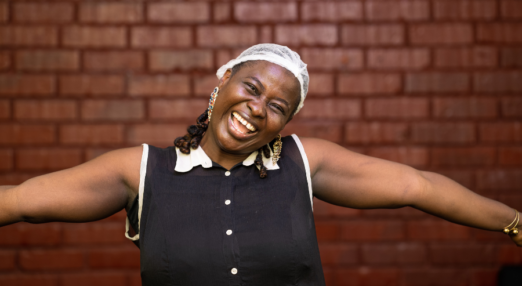
Bosede’s story: serving meals & serving communities
Bosede Laide Akindele's catering business provides more than just food, it also provides jobs and training opportunities to people in her community.
Read more
-
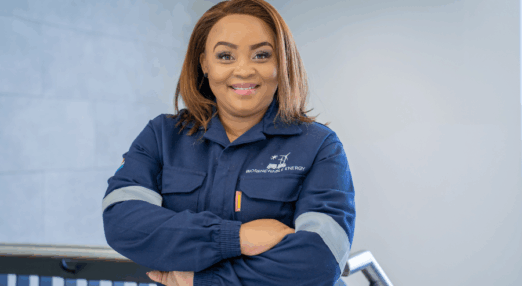
Sharon’s story: sustainable energy for South African communities
Sharon Gcwabe has a vision for a sustainable future. With her bio renewable energy company, she's bringing that vision to life.
Read more